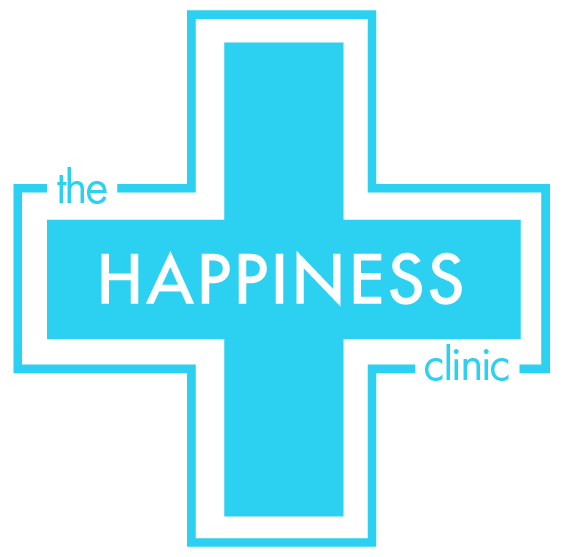5 Habits That Kill Relationships
Relationships are an underrated determinant of health, both personally and in business. If quality and sustainability, longevity, or a family are part of your vision, it’s going to take more than just you. You’re going to have to learn how to maintain a relationship.
This is easier said than done, especially when the relationship includes another human being. Because human beings are complex (read that: they don’t make sense). It can be very difficult to determine or know how to navigate a relationship out of troubled waters and into healthy flow.
Know Before You Go
There are habits that kill relationships.
As habits they are unconscious. They often appear normal because they are so common. However, as benign or normal as they may seem, they are insidious and as time goes on the damage and distance becomes greater and more apparent.
Here are some common hazards that can lead to heartbreak, break up, or lost connections.
1. Over-communication.
As a talkative female, I at first did not really believe this was a problem. Under-communication from my better half was to me, the source of our conflict. It’s laughable to me now (and I’ve even done a short stand-up bit about it. You can see it here.) But funny, not funny was visiting my childhood home and experiencing the bubbling fountain of words that is my heritage. I became very aware of how stressful and draining it is to be without a pause or an opening to be heard.
The human organism needs space and quiet; and in our busy lives we often don’t get enough of either. So when confronted with an onslaught of questions and a relentless stream of consciousness style flow of words, the internal pressure mounts and escape was all I could think of.
The origins of this are in insecurity, poor boundaries…basically bad communication and energetic hygiene that we learned early on. It’s indicative of unclear sense of self and discomfort with distance or perceived disconnection. Over time, we fatigue our counterparts’ attention, space, empathy, and social graces and the relationship withers.
2. Head tripping.
The key words here are “figure it out.”
Our current culture prizes logic and reason over intuition and emotion. There is a driving to understand rather than to use/apply data. This is especially frustrating in relationships because what we are often trying to understand is a human being—a non-linear system—that is influenced by and presenting or expressing wounding from trauma, past experiences, gender and cultural training, and a whole host of factors that you will not be able to see or know.
…And this includes you.
We cause a lot of undue stress and fatigue trying to make ourselves and others “make sense.”
We are human beings, not robots. As such we do not “make sense;” nor are we problems to be “figured out.” When we interact with ourselves and others that way, we tend to operate from incomplete information, inaccurate assumptions, and we remove the humanity and totality of a person.
People do not like being handled like chess pieces. To prize intellect and problem solving will come at the expense of being present to fully enjoy another’s company and all the awareness, objectivity, and creativity that are only available in the present. We lose connection with people when we live in our head and over time the relationship will also be a remnant of the past.
3. Mistrust.
Humans are social animals and we are driven connect. We are tribal and instinctively know that our survival requires inclusion in the group—so it is not surprising that betrayal and loss leave lasting scars. However, when we build a life around avoiding that pain, we end up creating more pain in the long run.
Here’s how that works…There is hurt, some sort of disconnection and resulting pain.
The following attempts to protect and avoid are natural, but become disadvantageous because they will keep us from experiencing the fullness of life—it’s what Brené Brown talks about with vulnerability and courage. We got to such extents to protect and avoid and ending up creating a life half-lived, refusing to let ourselves have and feel all the full depth and breadth of our own emotions; always holding a little back so that we don’t get hurt again.
But we actually create pain in refusing ourselves the totality of who and what we are, refusing to trust that we could handle “it.”
We will also create mistrust in others.
Energy is our first language so that when we refuse to trust, we will attract untrustworthy people or create a distance and atmosphere of fear and insecurity that will make us seem untrustworthy.
Either way, the relationship breaks down and the pain and distance persevere. And the ultimate tragedy is that it is always ourselves that we refuse to trust—we judge ourselves for the intensity and illogical feelings or intuition we have; we doubt our ability to handle the judgement we assume will come if we advocate for ourselves; we lack the confidence in ourselves and our ability to create safety and security for ourselves.
4. Co-dependency.
This is often stigmatized and relegated to the spheres of substance abuse, but co-dependency/ enmeshment is very common. Most relationships fall into it at some point—part of dating is so exciting because you “lose yourself” in someone else. It an be exhilarating at first, but exhausting over time and then inevitably moves to resentment and bitterness.
It happens in marriages, friendships, in business partnerships and collaboration and collectives of al kinds. Like over-communication, it’s a sign of an unclear sense of self and values that is then “borrowed” from an external source—another person, a mission—but requires that “other” in order to create and maintain a sense of purpose or worth; which means the other cannot change…so the freedom is gone.
Instead of connection there is obligation; and change or growth is perceived as betrayal. Enmeshment and co-dependency refuse or deny the space and autonomy that we need to be truly healthy and whole, and so will ultimately end in separation.
5. Abuse.
This seems obvious that abuse would kill a relationship. Unfortunately, we are more abusive than we care to admit because of how subtle abuse can be…especially when it is cloaked and presented as “helping.”
Self-righteousness is sneaky. It elevates us and we feel justified. Whether by status, spiritual awakening, weight loss success, or financial acumen we come to this place where we feel we’ve “figured it out” and now want to share with someone else.
The problem is, we rarely check in to see if the person we are choosing to share with is curious or interested in doing or choosing what we have.
“Help” given without request is abuse.
Opinions and advice given without invitation is not courtesy, but over-communication and an unconscious demand for external validation by the giver.
Your Next Steps
Relationships matter. They are assets to your health, business, quality of life.
If you’ve got a habit of over-communicating, head-tripping, mistrusting, enmeshing, or abusing you could be unintentionally killing your relationship…So it is up to you to break out of the patterns that are breaking you down.
Remember that your habits are coming from you, they are not you. You have the power and capacity to break these patterns and create healthy connections. You can steer your relationship back on course to improve the quality of your life and the legacy you leave your children.
Habits don’t break themselves. It requires effort and intention.
To get pragmatic tips on how to break the patterns that are killing you and your relationships, watch this POWER HOUR.
If you’re ready to dig in and root out these habits and be happyAF, let’s talk. Click the button below to schedule a FREE Call for Clarity to talk about next steps just for you.

